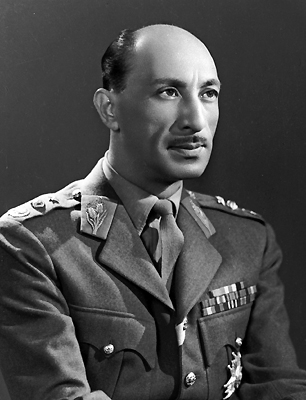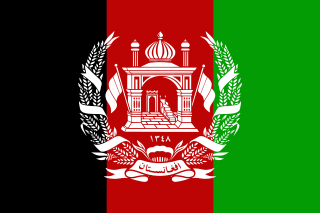Mohammed Nadir Atash (born 1947) is an Afghan-American educator, philanthropist, entrepreneur, and author.
Mohammed Nadir Atash (born 1947) is an Afghan-American educator, philanthropist, entrepreneur, and author.
M. Nadir Atash was born in Kabul, Afghanistan, the son of Afghan Army Issa Khan Noorestani. He attended The American University of Beirut, receiving a B.S. in Chemistry and came to the United States after the Soviet Invasion of Afghanistan in 1979. He went on to pursue a PhD in Educational Research at Florida State University.
Following the attacks of 9/11 and the U.S. invasion of Afghanistan, Atash returned to his country of birth to contribute to reconstruction efforts. After serving for three months as the Senior Adviser to the Ministry of Transport, Atash took a position as head of the country's primary airline carrier, Ariana.
During the rule of the Taliban, Ariana was used for narcotics trafficking and other terrorism-related activities, so Dr. Atash made efforts to implement modern systems of accounting and to make the airline safe for the annual hajj pilgrimage. He managed to secure a large deal with Boeing for Ariana , then eventually returned to the United States where he resides with his family today.

Afghanistan, officially the Islamic Emirate of Afghanistan, is a landlocked country located at the crossroads of Central Asia and South Asia. Referred to as the Heart of Asia, it is bordered by Pakistan to the east and south, Iran to the west, Turkmenistan to the northwest, Uzbekistan to the north, Tajikistan to the northeast, and China to the northeast and east. Occupying 652,864 square kilometers (252,072 sq mi) of land, the country is predominantly mountainous with plains in the north and the southwest, which are separated by the Hindu Kush mountain range. Kabul is the country's largest city and serves as its capital. According to the World Population review, as of 2023, Afghanistan's population is 43 million. The National Statistics Information Authority of Afghanistan estimated the population to be 32.9 million as of 2020.

The economy of Afghanistan is listed as the 147th largest in the world in terms of nominal gross domestic product (GDP), and 127th largest in the world in terms of purchasing power parity (PPP). With a population of around 41 million people, Afghanistan's GDP (nominal) stands at $7.43 billion as of 2024, amounting to a GDP per capita of $200. Its annual exports exceed $1.2 billion, with agricultural, mineral and textile products accounting for 94% of total exports. The nation's total external debt is $8.0 billion as of 2024.

Kabul is the capital city of Afghanistan. Located in the eastern half of the country, it is also a municipality, forming part of the Kabul Province; it is administratively divided into 22 municipal districts. According to 2023 estimates, the population of Kabul was 4.95 million people. In contemporary times, the city has served as Afghanistan's political, cultural, and economical center, and rapid urbanisation has made Kabul the 75th-largest city in the world and the country's primate city.

Mohammad Zahir Shah was the last King of Afghanistan, reigning from 8 November 1933 until he was deposed on 17 July 1973. Ruling for 40 years, Zahir Shah was the longest-serving ruler of Afghanistan since the foundation of the Durrani Empire in the 18th century.

Transport in Afghanistan is done mostly by road, rail and air. Much of the nation's road network was built in the mid-20th century but left to ruin during the last two decades of that century due to war and political turmoil. Officials of the current Islamic Emirate have continued to improve the national highways, roads, and bridges. In 2008, there were about 700,000 vehicles registered in Kabul. At least 1,314 traffic collisions were reported in 2022.
Ariana Afghan Airlines Co. Ltd., also known simply as Ariana, is the flag carrier and largest airline of Afghanistan. Founded in 1955, Ariana is the oldest airline in the country and is state owned. The company has its main base at Kabul International Airport, from which it operates domestic flights and international connections to destinations in China, India, Pakistan, Russia, Saudi Arabia, Turkey, and the United Arab Emirates. The carrier is headquartered in Shāre Naw district, Kabul. Ariana Afghan Airlines has been on the list of air carriers banned in the European Union since October 2006.
The following lists events that happened during 2001 in Afghanistan.

Kabul International Airport is located in the northern part of Kabul, Afghanistan. It is one of the country's main international airports, capable of housing over a hundred military and civilian aircraft. It is currently operated by UAE-based GAAC Holding and Afghanistan's Ministry of Transport and Civil Aviation.
Kam Air is the largest private Afghan airline. Founded in 2003, Kam Air has twelve aircraft and a workforce of over 1,200 people, operating scheduled domestic passenger services throughout Afghanistan and international services to destinations in Central Asia, South Asia, and the Middle East. Its hub is at Kabul International Airport in the capital Kabul.
Bakhtar Afghan Airlines is an airline from Afghanistan, which offers domestic flights. The company was founded in 1967 as Bakhtar Airlines, a name it kept until 1985, when it was renamed Bakhtar Afghan Airlines by Pashtun governments. In 1985 the company absorbed Ariana Afghan Airlines and became Afghanistan's sole airline company. In 1988 the Ariana and Bakhtar brands merged. However, the airline relaunched in 2020.

The history of the Jews in Afghanistan goes back at least 2,500 years. Ancient Iranian tradition suggests that Jews settled in Balkh, an erstwhile Zoroastrian and Buddhist stronghold, shortly after the collapse of the Kingdom of Judah in 587 BCE. In more recent times, the community has been reduced to complete extinction due to emigration, primarily to Israel. At the time of the large-scale 2021 Taliban offensive, only two Jews were still residing in the country: Zablon Simintov and his distant cousin Tova Moradi. When the Islamic Emirate of Afghanistan was re-established by the Taliban in August 2021, both Simintov and Moradi made aliyah on 7 September 2021 and 29 October 2021, respectively, leaving Afghanistan completely empty of Jews. Today, the overwhelming majority of the Afghan Jewish community resides in Israel, with a small group of a few hundred living in the United States and the United Kingdom.

Relations between Afghanistan and the United States began in 1921 under the leaderships of King Amanullah Khan and President Warren G. Harding, respectively. The first contact between the two nations occurred further back in the 1830s when the first recorded person from the United States explored Afghanistan. The United States government foreign aid program provided about $500 million in aid for economic development; the aid ended before the 1978 Saur Revolution. The Soviet invasion of Afghanistan in 1979 was a turning point in the Cold War, when the United States started to financially support the Afghan resistance. The country, under both the Carter and Reagan administrations committed $3 billion dollars in financial and diplomatic support and along with Pakistan also rendering critical support to the anti-Soviet Mujahideen forces. Beginning in 1980, the United States began admitting thousands of Afghan refugees for resettlement, and provided money and weapons to the Mujahideen through Pakistan's Inter-Services Intelligence (ISI). The USSR withdrew its troops in 1989.

Hashmat Ghani Ahmadzai commonly referred to as Hashmat Ghani, is an Afghan politician who is the Grand Council Chieftain of the Kuchis.
Mohammad Yousef Pashtun is an Afghan technocrat and politician. He served as Minister of Urban Development and Housing for two terms and as Governor of Kandahar province in 2003, replacing Gul Agha Sherzai under President Hamid Karzai's administration. In 2010, he was appointed as Senior Adviser to President Karzai on Construction, Mines, Water & Energy. In 2014, minister Pashtun continued to serve as Senior Adviser to President Ashraf Ghani. Yِousef Pashtun is also chairing the Kabul New City Development Authority Board.

The Kingdom of Afghanistan was a monarchy in Central Asia that was established in 1926 as a successor state to the Emirate of Afghanistan. It was proclaimed by its first king, Amanullah Khan, seven years after he acceded to the throne. The monarchy ended in the 1973 Afghan coup d'état.
Mohammad Daoud Sultanzoy, is an Afghan politician, pilot and television presenter who served as Mayor of Kabul from 2020 to 2021; the Fall of Kabul (2021) occurred during his incumbency. He was previously elected to represent Ghazni Province in Wolesi Jirga, the lower house of its National Legislature, in 2005. He is a Pashtun from the Ghilzai tribe. He is the only politician ever to serve under three heads of state leaders, Ghani and Saleh for Islamic Republic, and Akhundzada for Islamic Emirate (Taliban).

Ariana Afghan Airlines Flight 701 was the flight involved in a fatal air accident on 5 January 1969, when a Boeing 727 with 62 people on board crashed into a house on its approach to London Gatwick Airport in heavy fog. Due to pilot error the flaps were not extended to maintain flight at final approach speed.

On 19 March 1998, a Boeing 727 passenger jet operated by Ariana Afghan Airlines crashed on approach into Kabul, Afghanistan, killing all 45 people aboard. The flight may have been involved in smuggling and Islamic militant operations, as Ariana was at that time controlled by the Taliban-led Islamic Emirate of Afghanistan regime.

Mohammad Nadir Shah was King of Afghanistan from 15 October 1929 until his assassination in November 1933. Previously, he served as Minister of War, Afghan Ambassador to France, and as a general in the Royal Afghan Army. He and his son Mohammad Zahir Shah, who succeeded him, are part of the Musahiban.
Many aviation-related events took place in 2021. The aviation industry continued to be impacted by the COVID-19 pandemic.
1. The Embassy Of Afghanistan.
2. Walker, Brian. "A Covenant with Kabul", Boeing Frontiers, 3-2006. Retrieved on May 18, 2009